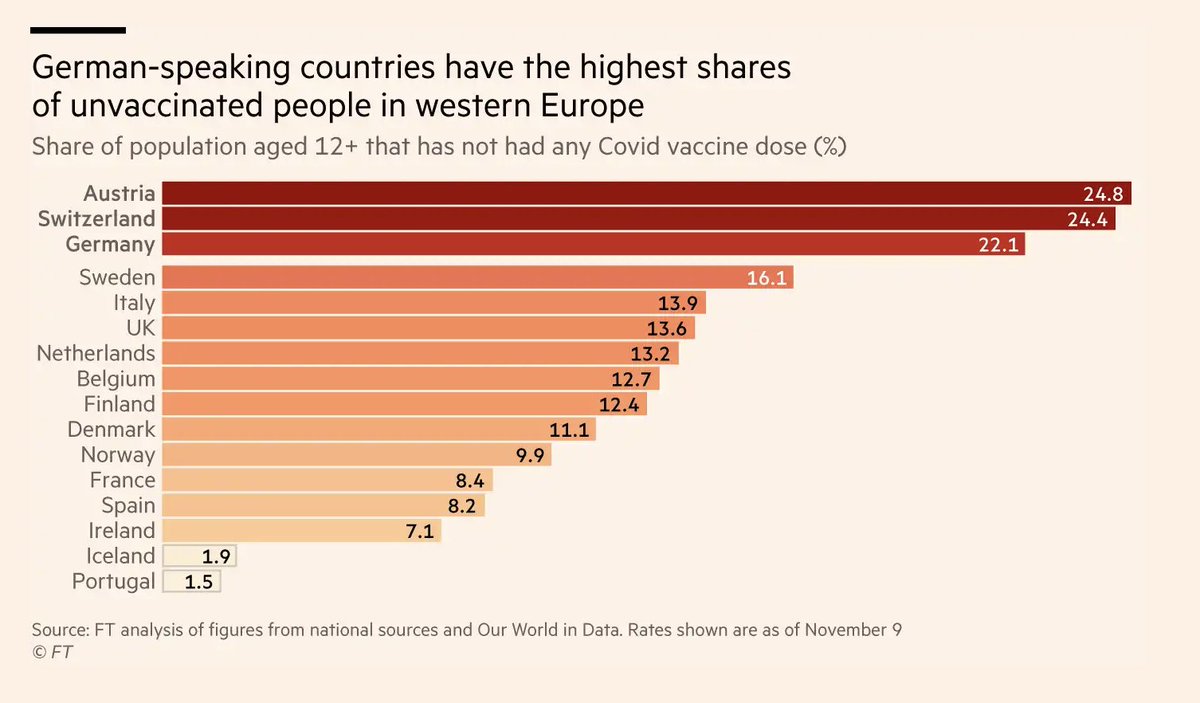I assume you're being disingenuous but maybe you really don't know. Just in case it's the latter and for anyone confused by what you've said let's have a look at a couple of those reports.
On vaccination % by country v cases stats. First lets go for the obvious. Policies on testing vary massively between countries - the UK tests all its secondary age kids plus lots of other groups routinely every week. Some countries only test for diagnostic purposes, once someone is seriously ill enough to need medical attention. In many areas the people least likely to come forward for testing are the same group that are least likely to get vaccinated. Now add in the fact that for vaccinated countries - one of the big gains has been to reopen - and cases v vaccine takeup between countries really tells you very little. It's useful for more detailed analysis of things like vaccine waning but only if you understand the exact nature of the stats.
More generally, of course vaccines reduce transmission. Even if you take the worse case stats from the UK and look at groups where vaccine efficacy is waning you still see at least a 50% reduction in cases between the vaxxed and unvaxxed in comparable cohorts. You also see a reduction in onward transmission - not in initial viral load that some sites talk about (broadly the same vaxxed/unvaxxed) but in the number of days they remain infectious for.
You're correct to believe that the biggest advantage though is in reducing hospitalisations of the vulnerable where vulnerable includes a lot of working age adults. For most people who don't live in social isolation, the vulnerable are all around you and don't necessarily conform to the standard model of 80+ and frail.
That just isn't true. Many people don't know they're vulnerable until they find it out the hard way. Others like
Paul Pogba,
Allan Saint-Maximin didn't know they were vulnerable until they took weeks to recover from it,
Karl Darlow probably reckoned he was safe until he was hospitalised with it. Or maybe you'd prefer the stories from some
US based athletes.
Or you could try reading up on the myocarditis and covid studies in young men, including those cautioning athletes about the hidden risks as they return to training.
https://www.jwatch.org/na53704/2021/06/04/covid-19-myocarditis-athletes
Of course regulators internationally are constantly looking at vaccine adverse reactions. It's their job. Sometimes that leads to new advice like the advice in some countries (with low covid case incidence and plenty of Pfizer as an alternative) not to use Moderna.
I'm not going to tell anyone their personal odds of being seriously affected by covid or their odds of being affected badly by the vaccine. It's a statistical question. The odds for almost everyone (main exception: people with allergic responses to the vaccine components) are that they as individuals are safer with the vaccine than without.
As an aside, personally I'm not a fan of vaccine passports etc as a long term fix and I think we're already at the point in some countries where they might do more harm in terms of public confidence and vaccine takeup than good, and compound some institutional discrimination in the process. But that's got nothing to do with my belief that we're all a lot safer in highly vaccinated communities and that mass vaccination is the safest (lowest loss of life, lowest longterm health impacts, lowest hospitalisation levels) route to reopening and normal life.


